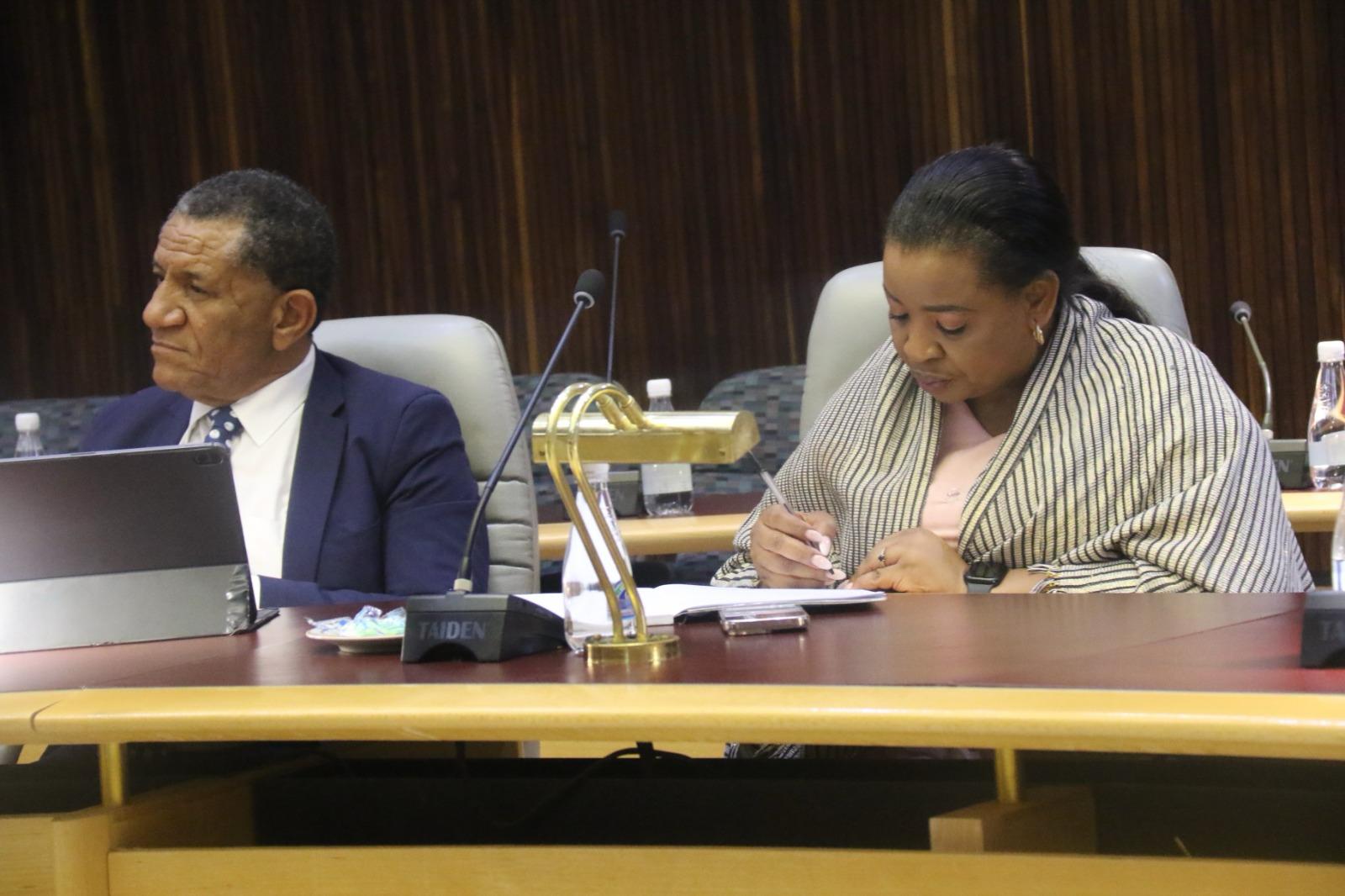A constitutional attack on a section of the Prevention of Organised Crime Act by one of the accused in the Fishrot fishing quotas fraud, corruption and racketeering case has failed.
In a judgement delivered in the Windhoek High Court yesterday, three judges of the court dismissed an application in which one of the accused in the Fishrot case, James Hatuikulipi, asked the court to declare a section of the Prevention of Organised Crime Act as unconstitutional.
Hatuikulipi also wanted the court to declare a property restraint order affecting assets of some of the accused in the Fishrot case as unconstitutional and to set aside the order. Judges Shafimana Ueitele and Herman Oosthuizen and acting judge Collins Parker dismissed that part of Hatuikulipi’s application as well.
High Court judge Orben Sibeya in November 2020 issued a property restraint order in respect of assets belonging to Hatuikulipi and five co-accused in the Fishrot case – former attorney general and justice minister Sacky Shanghala, former minister of fisheries and marine resources Bernhard Esau, Hatuikulipi’s cousin Tamson Hatuikulipi, Ricardo Gustavo and Pius Mwatelulo – and 10 corporate entities or trusts under their control.
The restrained assets include bank and investment accounts, interests in companies and close corporations, immovable properties, nearly 60 motor vehicles, firearms, jewellery and several luxury watches.
In terms of the restraint order, which is due to remain in place until the men’s pending criminal trial in the Windhoek High Court has been concluded, the affected assets may not be dealt with by anybody, must be preserved and have been placed under the control of curators.
The Prevention of Organised Crime Act states that a court may order the confiscation of assets under restraint after the owner has been convicted of an offence and the court has determined the value of the benefit the owner derived from the offence.
In his application, Hatuikulipi asked the court to declare as unconstitutional a part of a section of the act that states the High Court must grant a property restraint order if it “appears to the court that there are reasonable grounds for believing that a confiscation order may be made” against a person facing charges in criminal proceedings.
Hatuikulipi claimed the act’s requirement that there should be reasonable grounds to believe a confiscation order may be granted before a court issues a property restraint order means a court would have to first conclude there are reasonable grounds to believe he would be convicted.
The effect of that requirement in the law is that his constitutional right to be presumed innocent is limited, he claimed.
He also claimed that the restraint order granted by the court in November 2020 limits his constitutional right to own and dispose of property.
In the court’s judgement, Parker said with his attack on the law, Hatuikulipi would like to have restraint orders done away with altogether. That would mean that Namibia would be failing to carry out its obligations under international agreements against corruption and transnational organised crime, Parker remarked.
He pointed out that a property restraint order is an interim order that operates pending the final outcome of a criminal trial. A restraint order preserves realisable assets to cater for the possibility – and not the likelihood – of an assets confiscation order at the end of a criminal trial, the judge added.
Parker also indicated that he disagreed with an argument that the act gave “untrammelled discretion” to the prosecutor general, who applied to the court for the restraint order that was granted in November 2020. The discretion that the prosecutor general exercises is not absolute, but is guided discretion, and a court is entitled to refuse an application for a restraint order if it finds that the facts do not support the granting of such an order, he said.
The three judges heard oral arguments on Hatuikulipi’s application in June this year.
Senior counsel Vas Soni, together with Ronald Kurtz and Gilroy Kasper, represented Hatuikulipi.
The prosecutor general was represented by senior counsel Wim Trengove, with Karla Saller, Sakeus Akweenda and Mariette Boonzaier.
Stay informed with The Namibian – your source for credible journalism. Get in-depth reporting and opinions for
only N$85 a month. Invest in journalism, invest in democracy –
Subscribe Now!










